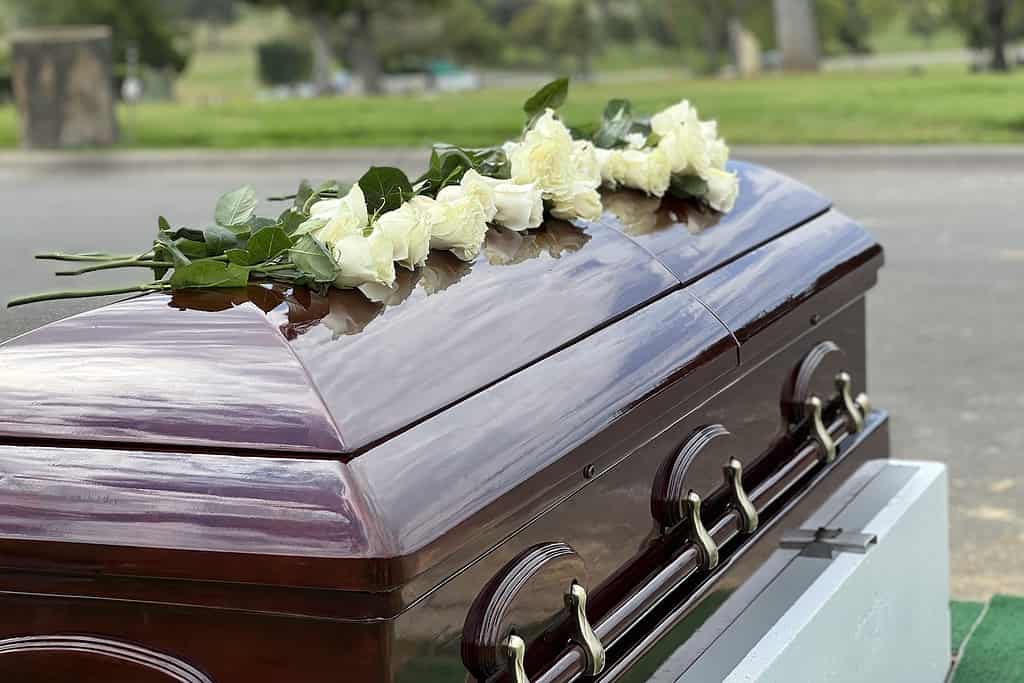Anytime a business or group stands to lose money you’ll see them try to exert influence so that the circumstances don’t change out of their favor and threaten their finances. That’s been the case in the funeral industry with casket makers.
As disposition options expand and more people opt for alternatives, casket makers have found themselves in a precarious position. The new forms of disposition don’t involve burial in an expensive casket. They either do away with the casket altogether or lean towards simple, biodegradable options that are more widely available and can even be made by the family.
The fact that the majority of Americans are now cremated and the percentage is expected to keep steadily increasing is already a challenge for coffin makers. As they see the funeral industry changing, casket makers have tried to influence where it goes, but they’ve done so in a way that slows progress. That tactic hasn’t boded well in recent years, which is why we’re seeing casket makers change their strategy for handling the changes that are happening in death care.
Casket Makers Have a History of Fighting Disposition Legalization
Crematoriums know firsthand that casket makers are invested in promoting burial over other forms of disposition. Back in 1986 the Los Angeles Times reported about shifts in casket-making. At that point half of the 650 independent casket makers that existed in 1965 had gone under. Most caskets at that time were being supplied by either Batesville Casket Co. or Amedco Inc. A significant factor in the decline of casket makers was the rise in the rate of cremation.
So, it comes at no surprise at all that casket makers are among the most outspoken groups against water cremation. Although water cremation is even safer than traditional flame-based cremation, both for funeral home workers and the general public, casket makers have vehemently fought its legalization. They have lobbied state lawmakers and put out marketing messages trying to convince the public that water cremation shouldn’t be allowed. Their reasoning has been repeatedly debunked, making it clear the wish to prevent legalization is for their own gain.
A perfect example of this conflict of interest happened in 2015 in Indiana. A bill that would have allowed for water cremation was opposed by Representative Dick Hamm. His speech against legalization was riddled with inaccurate statements and misrepresentations about the process. Hamm also happened to own two casket-making companies. Ultimately, Hamm’s actions prevented water cremation from being legalized in the state, but it also put a national spotlight on the clear conflict of interest that casket makers have with alternate forms of disposition.
After that incident, it was harder for people to trust what casket makers have to say on the issue of water cremation and other disposition alternatives. Case in point – Hamm lost his primary election in 2018 after serving three terms in office.
Casket Makers’ Response to the Adoption of Natural Organic Reduction Has Been More Subdued
Natural organic reduction (NOR), also known as human composting, is the newest type of disposition that’s quickly being legalized across the U.S. Unlike traditional cremations that could involve a rental casket for services, that isn’t the case with natural organic reduction. No casket is needed at all because the deceased is in the vessel for a closing-in ceremony if the family chooses to do one.
As expected, casket makers aren’t showing support for NOR. And casket makers are among those that have perpetuated misconceptions about the natural organic reduction process just as they did with water cremation. However, casket makers have been much less vocal, and there certainly haven’t been any Congressman Hamm incidents as more states legalize natural organic reduction.
This time around casket makers are taking a different approach now that it’s clear alternative forms of disposition are on the rise and there’s substantial consumer interest.
How Coffin Makers Are Navigating the Changing Funeral Industry
Coffin makers aren’t ignorant to the fact that significant change is underway in the funeral industry at large. They closely track consumer sentiment and what’s happening in society at large because the success of their business depends on it. Many casket makers started rethinking their business models back in 2006 when cremation was quickly becoming a more popular disposition option.
Back then the main concern was the cost of burial compared to cremation. Right now in the present day, consumers are demanding disposition options that are not only more affordable, but also eco-friendly and personalized. On top of that, the cremation rate has greatly exceeded what was projected in 2006.
The personalization point is one that coffin makers are now capitalizing on. We’re beginning to see direct-to-consumer casket makers that have based their business on personalizing coffins at competitive prices. The hope is that customized coffins will help justify the high cost of a container that gets buried in the ground. Offering personalization can give a coffin maker an edge over direct competitors as well.
Casket makers are also extending their product selection to remain profitable as the funeral industry evolves. Most notably, many casket makers plan to offer more eco-friendly coffins, vaults and urns. It’s a clear sign they understand burials are on the decline and they must evolve to remain relevant and profitable.
Pivoting in these ways are signs that casket makers are changing their tactics because trying to prevent the legalization of disposition options goes against consumer sentiment. If the majority of people are on the other side of the debate, it won’t look good for casket makers. It comes across as very self-serving, given that casket makers are advocating to limit safe, green disposition options. Lawmakers are much less likely to uphold the wishes of a special interest group when the masses want something else, which is why we’re beginning to see less pushback against alternative disposition options from special interest groups like casket makers.
If you would like to arrange eco-friendly alternative disposition services in Texas Cremation.Green can help. We’re the first carbon-neutral funeral home in the state, and we’re dedicated to ensuring all Texans get the death care they prefer.






